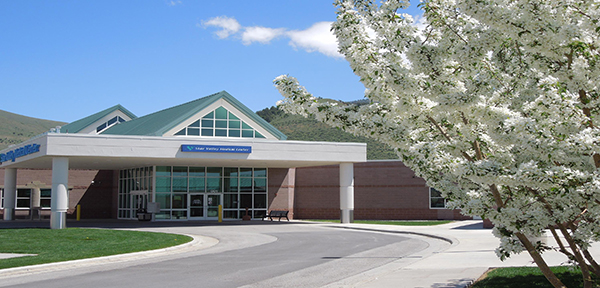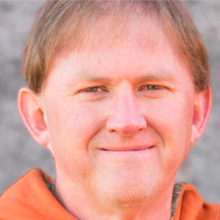
When it comes to ensuring patients receive the best possible imaging experience, Star Valley Medical Center in Afton, Wyo. went the extra mile so that patients don’t have to.
The rural critical access hospital selected and installed the Fujifilm Scenaria SE 64/128 CT, which was imperative to the facility. Prior to the installation, residents of north Lincoln County had to travel hundreds of miles just to receive imaging services and physicians were burdened with the thought of time and distance playing factors in whether a surgery would be successful or not.

“As a remote hospital, our population is somewhat restricted on options for healthcare,” says Terry Lemon, radiology director of Star Valley Medical Center. “Star Valley strives to ensure that our equipment and technology is up to date and able to perform as many procedures as possible in a timely manner. If we can provide state-of-the-art healthcare, we hope to keep our population local. As for those emergencies where we must transport a critically injured patient, we need to ensure that the receiving hospital is receiving quality imaging.”
Star Valley staff decided to install Fujifilm’s Scenaria CT in January 2016, and it has proven to be a perfect fit for the hospital’s radiology department. Lemon says patients and physicians from the surrounding area have noticed the difference, helping Star Valley earn a reputation as a “small-town hospital delivering big-city medicine.”
“We have providers from neighboring hospitals sending patients to us because of the clarity of the Fujifilm images,” he says. “Many patients in the past had to travel hundreds of miles for imaging that our systems can now provide.”
The Scenaria CT provides Star Valley staff with an enhanced workflow speed and ease of use to meet their busy CT facility’s needs. With a rapid 0.35-second minimum scan speed, useful for neurological, cardiac, body, and musculoskeletal applications, physicians are able to see more patients throughout the day.
“We have a 7 percent increase of patients since the installation,” Lemon says. “And we have no problem absorbing the additional patients because our scan time is faster with the new CT.”
The installation also allows Star Valley to offer coronary CT angiography (CTA) and calcium scoring, which enables imaging of the entire coronary arterial tree. “We have recently completed training surrounding the cardiac functions that are available with our CT, which is just one more procedure that patients will not have to travel for,” Lemon adds.
Patients will also be exposed to reduced radiation doses now; the Fujifilm CT includes four different settings to support lower kV and dose based on a patient’s size, which is beneficial for small and pediatric patients who may need a lower dose. The new scanner’s reporting capabilities, which include DICOM dose structured reports and simple dose reports, also help in this regard. And a dose check is also included to monitor for exam doses that may exceed notice or alert levels.
Another benefit of installing Fujifilm’s Scenaria CT is that Star Valley can now offer their patients a high level of comfort, which keeps patients happy and helps drive up satisfaction scores, which matter now in this time of value-based care more than ever.
For example, the scanner’s wide aperture and its one-of-a-kind standard lateral shift table, which accommodates patients up to 550-pounds, help take patient care at the facility to a whole other level.
When it comes to characteristics that matter most, Fujifilm has proven their commitment to the remote facility through their initial applications training and unlimited follow-up on-site training for staff members. Star Valley employees report that they have received exceptional support service focused on patient experience, dose efficiency, image quality and ease of use. For example, Lemon says the installation of the Scenaria CT was a smooth transition for staff members and their exceptional relationship with Fujifilm has translated into patient success.
“Application trainers did a great job training our staff,” he says. “We had technicians at multiple levels of experience and the trainers took their time to bringing them all up to a level where they could scan confidently. It was new for us and well received by our community. The service has been exceptional, and the fact that we have exceptional uptime is a service to our patients and physicians.”
And despite being a remote facility, location has never been an issue, as Fujifilm has been able to meet and exceed Star Valley’s support expectations. “We have enjoyed our partnership with Fujifilm,” Lemon adds. “When you are a rural hospital you need to trust that our equipment will be working and Fujifilm does just that. Fujifilm has been proactive with maintenance and servicing our equipment.”
Time is truly of the essence when it comes to treating patients at Star Valley, where patients don’t have many other options nearby.
“Our patients, especially the elderly, have a hard time traveling two hours over high mountain roads to larger communities with larger hospitals,” Lemon explains. “They very much appreciate us being able to provide full service scanning so they do not have to travel. It is important for us to offer a service that is as good as, or better than, what they would get if they made the long trip to another facility.” Lemon says he has spoken with radiologists who read images from 19 other facilities, and they all agree that image quality coming out of Star Valley is excellent. The theme of “small-town hospital delivering big-city medicine” returns once again, as it will each and every day within the walls of Star Valley Medical Center.